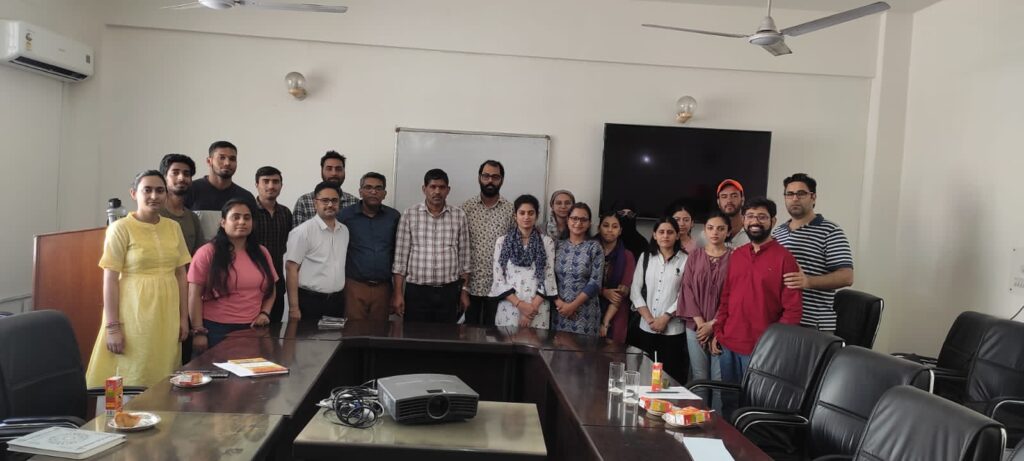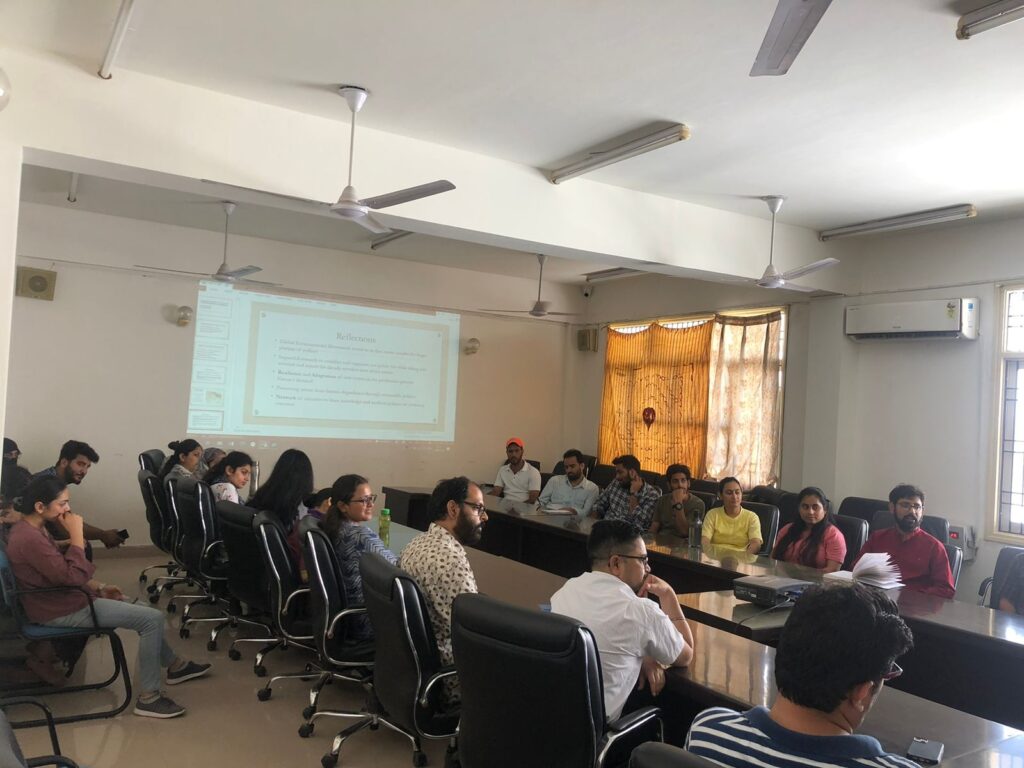The Department of Strategic and Regional Studies (DSRS), University of Jammu has organized a talk on “Imagining ‘regional’ in Climate Science
JAMMU, June 15: The Department of Strategic and Regional Studies (DSRS), University of Jammu has organized a talk on “Imagining ‘regional’ in Climate Science: Challenges of Scientists in the Himalayas” in the seminar hall of the Department of Strategic and Regional Studies (DSRS). The talk was delivered by Dr. Suresh Babu G.S., faculty in the School of Social Sciences, JNU, New Delhi, to the Research Scholars and the students of the master’s programme of the department. Prof. Virender Koundal, Director DSRS, formally welcomed the Chief Guest, Dr. Suresh Babu, and other dignitaries and introduced the theme of the lecture and invited Dr. Suresh Babu delivered the talk.


Dr. Suresh Babu began his talk first by introducing the concepts of “climate change”, “region”, “temperature of glacial regions”, and “Karakorum anomaly” and thereafter explained in detail about the whole Himalayan regions global warming and cooling variations which have generated enormous debate amongst scientists, social scientists and policymakers of the eight countries sharing this region. He mentioned about developmental induced changes in the ecosystem and a new dimension to understanding the impact of climate change as a consequence of adhering to the economic growth model. The policymakers’ focus is to provide market oriented services to the people with an intention of catering the needs of the society, market or nation but from the environmental and ecological perspective there are constraints and contrasts in this approach. He stressed that India and China are the most productive markets in the world and this also causes environmental issues that add up to the climate change issue.
In the end, Dr. Suresh Babu had a brain-storming session with the research scholars and faculty members and they discussed varied dimensions of climate change and puzzles that originate from the liberalization, globalization, modernization, and other progressive domains of contemporary era. He also shed light on how and why the eight states surrounding the Himalayan region or sharing this region need to look into this issue related to the environment and climate change to make them viable and sustainable modern states in international politics.
After this, Director DSRS, Prof. Virender Koundal gave his concluding remarks. This program was also attended by the Department faculty Dr. Surinder Mohan, Dr. Ranjan Sharma, Dr. Ganesh Malhotra, research scholars and PG students of the department. In the end, Dr. Mohammad Monir Alam gave the vote of thanks.
(NOTE: PRESS RELEASE PUBLISHED AS RECEIVED)






